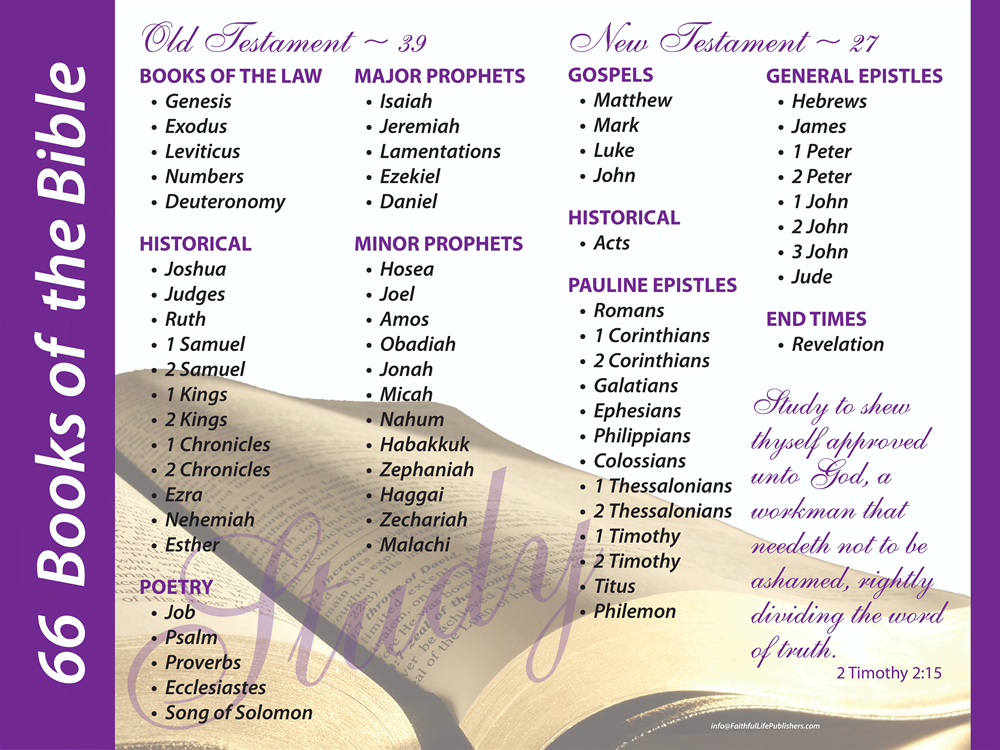Exploring The 66 Books Of The Bible And Their Authors
The Bible, a revered spiritual text, encompasses a vast collection of 66 books, each with its unique history, context, and authorship. These texts collectively narrate the divine story of humanity’s relationship with God, encompassing themes of faith, morality, and redemption. Understanding the authors of these sacred writings provides a deeper insight into their significance and the circumstances under which they were penned. Not only do these books serve as a spiritual guide, but they also reflect the cultural, political, and social dynamics of the times in which they were written. This article delves into the rich tapestry of the 66 books of the Bible and their authors, showcasing the diverse backgrounds and experiences that shaped these timeless works.
As we embark on this exploration, it’s essential to recognize that the authors of the 66 books of the Bible were not merely scribes but individuals inspired by divine revelation. They came from various walks of life—shepherds, kings, prophets, and apostles—each contributing a unique perspective to the biblical narrative. In examining their backgrounds, we uncover the profound truths embedded within the scriptures and how these truths resonate throughout history and into our modern lives.
Through this article, we will not only list the 66 books of the Bible and their authors but also answer some compelling questions surrounding their origins and impact. By the end of this exploration, readers will have a richer understanding of how these texts have shaped religious thought and practice over centuries and continue to influence millions around the globe.
What Are the 66 Books of the Bible?
The Bible is divided into two main sections: the Old Testament and the New Testament. The Old Testament contains 39 books, while the New Testament comprises 27 books. Together, they provide a comprehensive narrative of God's covenant with humanity, beginning with creation and culminating in the life and teachings of Jesus Christ.
Who Wrote the Old Testament Books?
The authorship of the Old Testament is attributed to various figures, often spanning generations. Some key authors include:
- Moses: Traditionally credited with writing the first five books, known as the Torah or Pentateuch.
- David: A significant contributor to the Psalms, expressing deep spirituality and human emotion.
- Solomon: Associated with books like Proverbs, Ecclesiastes, and the Song of Solomon.
- Prophets: Such as Isaiah, Jeremiah, and Ezekiel, who conveyed God's messages to His people.
What Are the Major Themes Found in the Old Testament?
The Old Testament explores several themes, including:
- Covenant: The agreements made between God and humanity.
- Faithfulness: The unwavering commitment of God to His people.
- Redemption: The promise of salvation and deliverance.
- Prophecy: Foretelling future events and the coming of the Messiah.
Who Authored the New Testament Books?
The New Testament, written in the first century AD, features a different set of authors, primarily the apostles and early church leaders. Notable authors include:
- Matthew: One of the twelve apostles, known for his Gospel account.
- John: The beloved disciple, credited with the Gospel of John, three letters, and Revelation.
- Paul: An influential apostle whose letters to various churches form a significant portion of the New Testament.
- Luke: A physician and companion of Paul, authoring both the Gospel of Luke and the Acts of the Apostles.
What Are the Key Themes in the New Testament?
The New Testament emphasizes themes such as:
- Grace: The unmerited favor of God towards humanity.
- Salvation: The message of redemption through Jesus Christ.
- Love: The commandment to love God and one another.
- Community: The importance of fellowship among believers.
How Do the 66 Books of the Bible and Their Authors Relate to Each Other?
Each book of the Bible contributes to a larger narrative, interweaving the stories and teachings of its authors. This collective authorship reflects the consistent theme of God's relationship with humanity, showcasing His desire for connection, guidance, and redemption.
What Impact Have the 66 Books of the Bible Had on Society?
The influence of the Bible extends beyond religious communities, shaping moral frameworks, legal systems, and cultural norms. Its teachings have inspired countless individuals, movements, and even works of art throughout history.
Can We Trust the Authorship of the 66 Books of the Bible?
While debates surrounding authorship exist, the historical and textual evidence supports the traditional views of authorship for many of the books. Scholars continue to study the manuscripts, historical contexts, and linguistic styles to deepen our understanding of these ancient texts.
In conclusion, the 66 books of the Bible and their authors form a foundational element of spiritual and moral teaching across diverse cultures. By exploring the backgrounds and intentions of these authors, we gain valuable insights into the timeless messages contained within the Scriptures. Whether you are a seasoned theologian or a curious seeker, understanding the authors behind these sacred texts enriches your journey through the Bible.
Unveiling The Shadows: Dark Fantasy Last Names
Flirting With Words: The Best Comments For Your Crush
Exploring The Life And Achievements Of Becky Stanley Broderson


